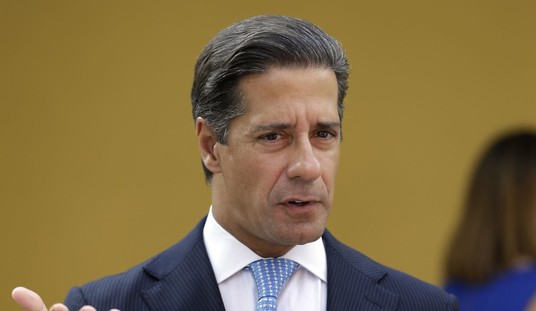Last week, when Donald Trump imposed travel restrictions on the Schengen zone, the EU protested that it was an overreaction and protested that Trump hadn’t consulted them first. Today, France’s president announced that the Schengen zone is closed due to the “war” against the coronavirus, apparently without consulting Brussels. Likewise, Germany has put border restrictions in place to prevent entry as national borders have become a key asset in the fight against COVID-19.
The EU has tried to push back against the unilateral actions from both France and Germany, but might be forced to play along:
The European Union is considering the drastic step of suspending nearly all incoming travel to the 27-member bloc to combat not only the coronavirus but also the “every country for itself” ethos spreading rapidly through member states.
The EU’s 27 leaders will hold a teleconference on Tuesday to discuss the proposal, which would cover 30 European countries — all EU member states except Ireland, plus the four non-EU countries that are part of the Schengen border-free zone.
But at least eight EU states have already taken matters into their own hands, unilaterally shutting out foreign nationals or partially closing their borders to one or more neighboring country. They include the EU’s biggest state, founder-member Germany.
Those decisions have left Schengen, a pillar of European free movement for 35 years, in tatters, for now at least.
This crisis puts an age-old truth in stark relief: border controls exist for good reasons. The West has not had to deal with a serious pandemic for a century, and one outside of war for longer than that, thanks to vastly improved medicine and science. In times of relative peace and a lack of outside pressure, open borders between relatively similarly situated countries work pretty well, but those are only the most optimal conditions.
What happens when less-than-optimal conditions arise? We saw a preview of this in the lead-up to the Brexit push. The US and its European NATO partners decided to conduct a disastrous intervention to decapitate the previously cooperative dictatorship in Libya, leaving a failed state in its wake. It also encouraged an uprising in Syria at the same time, leading to a massive refugee flood into the Schengen zone, which created cultural and political stress that finally convinced Britons that they needed to regain control of their borders. That was the driving force behind Brexit, with trade policy a close second.
Now that a pandemic has broken out, the need for restricting movement across national borders has become apparent enough to reinstitute them, at least temporarily. This should not surprise anyone, but it does demonstrate that open borders are at best only useful in the absence of crisis and when the relative economics across those borders are generally equal. Fortifying borders is a common-sense reaction to pandemics, and only our relative inexperience at dealing with these crises kept us from seeing that.
It might be a little late for that now in Europe, which means governments might now have to use more forceful measures to impede the transmission of the pandemic. In France, Emmanuel Macron has all but imposed martial law to prevent movement:
The movement of French citizens will be tightly restricted, starting from midday on Tuesday and lasting through at least the end of the month, with people expected to stay home, leaving only for essential activities like food shopping. Anyone violating the order faces punishment.
“We are at war,’’ Mr. Macron said in an address to the nation Monday night. “The enemy is invisible and it requires our general mobilization.”
The French army will deploy to transport the sick to hospitals, and a military hospital with 30 intensive care beds will be set up in the eastern region of Alsace, where one of the largest infection clusters has erupted.
Mr. Macron was responding to severe warnings from doctors about an increasingly dire situation. Jérôme Salomon, a top official at France’s health ministry, told France Inter radio on Monday that the situation in France was “deteriorating very quickly.”
Macron also left open the possibility of nationalizing industries to cope with the pandemic, but that would be a colossal mistake. Private enterprise is far more dynamic and able to adjust around such crises; the problem is usually that government regulation passed in easier times gets in the way of production. That was the case here in the US with COVID-19 testing.
Finally, this points up something else worth noting about super-national governmental bodies. Those also work mainly in relatively normal times, to the extent they function well at all. When crises emerge, member nations will always act to defend their own interests and do so with much greater alacrity than multilateral organizations. That’s why the Common Market was a brilliant idea, but the EU less so. Now that France and Germany are acting to repudiate it and Brussels is only able to catch up to it, one has to wonder whether Schengen and the EU will ever really return in their previous forms.








Join the conversation as a VIP Member